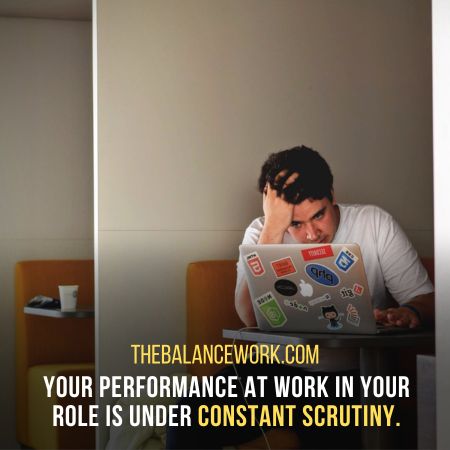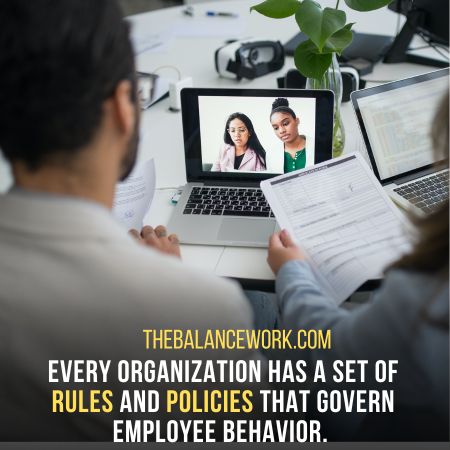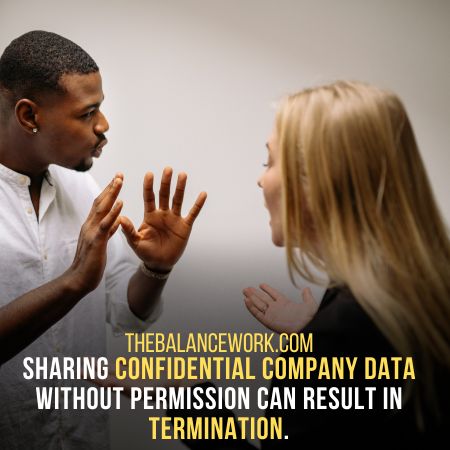In the realm of employment, maintaining a position can sometimes prove to be as challenging as securing it.
There are numerous reasons why an employee might face termination.
While some are straightforward, like incompetence or lack of productivity, others are more nuanced and involve workplace dynamics.
This article explores the top ten reasons why employees get dismissed, offering insights to help you navigate the sometimes treacherous waters of professional conduct and job security.
10 Reasons Employees Get Fired in Workplace
In understanding these causes of job termination, you can craft a professional strategy to avoid them.
Let’s delve into these common pitfalls, from poor performance to failing to adapt to change.
By being aware and proactive, you can secure your position and advance towards a flourishing career.
Here are the top ten reasons that might result in termination and how to avoid them.
1. Poor Performance
Your performance in your role is under constant scrutiny.
Consistently failing to meet productivity targets or perform expected tasks competently may result in termination.
2. Violation of Company Policy
Every organization has a set of rules and policies that govern employee behavior.
Violating these company policies, knowingly or unknowingly, can lead to dismissal.
3. Insubordination
Failure to follow instructions or openly defying your superior’s orders is insubordination, a serious offense that may result in termination.
4. Lying on Your Job Application
If your employer discovers that you lied on your job application about your qualifications, past jobs, or other important details, you may face termination.
5. Theft
Stealing from the company or from colleagues is a serious offense.
This could range from tangible items to intangible assets such as proprietary information.

6. Frequent Absence or Tardiness
Frequently missing work or regularly arriving late can be grounds for termination.
This behavior can a lack of commitment to your job.
7. Inappropriate Behavior
Inappropriate behavior, such as harassment or bullying, creates a hostile work environment and can quickly lead to job termination.
8. Failing to Adapt to Change
The inability to adapt to changes in job responsibilities or the workplace environment might lead to job loss.
Employers value flexibility and adaptability.
9. Misuse of Company Resources
Using company resources for personal use or wasting them can lead to dismissal.
This can include anything from office supplies to company time.
10. Breaching Confidentiality
Sharing confidential company information without permission can result in termination.
Trust is critical in any workplace, and breaching this trust can have serious consequences.
Signs Your Boss Wants to Fire You
If it worries you that your employer may be considering firing you, look for signs such as sudden changes in how they treat you, diminishing responsibilities, or a sudden lack of communication.
Be proactive and reach out to discuss any potential issues before it comes to the point of termination.
In some cases, honest dialogue can help resolve misunderstandings and lead to improved job performance.

How to Get Your Boss Fired?
If your boss is truly unsuitable for their role, it’s possible to take action.
Documenting any abuse of power or inappropriate behavior can be helpful in this situation.
Reporting the behavior to HR or other higher-up management is also good if you feel comfortable doing so.
Ultimately, it’s important to remember that these actions are only for extreme situations, and it’s best to attempt to resolve any issues through dialogue first.
How to Annoy Your Boss Without Getting Fired?
It may be tempting to do something drastic when dealing with a difficult boss, but it’s important to keep your emotions in check.
Annoying your boss is never a recommended approach and can lead to serious consequences, including termination.
If you find yourself feeling frustrated, try expressing your concerns in a professional manner.
How to Convince Your Boss Not to Fire You?
In some cases, it may be possible to convince your boss not to fire you.
Showing that you understand the consequences of your actions and expressing a plan to improve can help to demonstrate your commitment and willingness to do better.
In addition, explained why you are an asset to the company and how firing you could negatively affect the team or organization as a whole.
Can An Employer Tell to Other Employees Why You Were Fired?
With the exception of certain extreme cases, employers are usually not allowed to discuss an employee’s termination with other employees.
Doing so could be considered defamation or a violation of privacy laws, so it is best to consult with your employer and determine what information you can legally share.
Can A Boss Be Fired?
Yes, a boss can be fired under certain conditions.
Depending on the organization’s policies and the severity of the situation, a company can terminate a boss if they have committed an infraction or violation of company standards.
In cases where the termination is due to performance issues, it is important for employers to provide proper feedback throughout the disciplinary process in order to ensure fairness.
What to Say to a Co-worker Who Got Fired?
When a co-worker is let go, it can be difficult to know what to say.
Expressing your sympathy and support without prying into the details of their termination can be a good approach.
Additionally, try offering practical advice such as searching for new job opportunities or recommending local resources that may help them during this tough time.
How to Deal With a Co-worker Who is Trying to Get You Fired?
If a co-worker is trying to get you fired, staying calm and taking the necessary steps to protect yourself is important.
Keep good records of your work performance, accomplishments, and interactions with your colleagues in order to prepare a defense should the need arise.
How to Date a Co-worker Without Getting Fired?
Dating a co-worker can be tricky, but it doesn’t have to end in termination.
Employers typically frown upon workplace relationships, so it is important to stay professional and maintain proper boundaries while on the job.
Additionally, consult your employer’s policies to ensure that your relationship does not violate any rules or regulations.
How to Get Someone Fired?
Getting someone fired is not something to be taken lightly and can result in legal consequences.
If you have evidence of wrongdoing or misconduct, it is important to consult with your employer and HR department before taking any action.
Moreover, taking matters into your own hands can lead to serious repercussions.
Does Getting Fired Go On Your Record?
Getting fired can have a lasting effect on your professional reputation.
Employers may ask for references from previous employers during the hiring process and firing is usually on an employee’s record, although the exact details may vary depending on the state.

Is it Better to Quit or be Fired?
When faced with a difficult job situation, it is generally better to quit.
However, if you are planning to quit your job, make sure you understand the potential consequences and weigh your options carefully before making a final decision.
How to Fire An Employee Without Probation Period?
Terminating an employee without a probationary period is possible, but it is important to follow all necessary protocols.
Before taking action, consult with your HR department and make sure you have documented evidence of any wrongdoing or misconduct.
Additionally, ensure that the termination follows applicable laws and regulations in your state or country.
Conclusion
In conclusion, individuals often face dismissal due to reasons such as misconduct, non-performance, or violation of workplace policies.
However, to dodge this unfavorable event, it’s crucial to maintain professional conduct, deliver work efficiently, and adhere to your company’s rules and regulations.
Moreover, regular communication with your superiors, seeking feedback, and continuously improving your skills can also significantly reduce the risk of termination.
Remember, prevention is always better than dealing with the aftermath of being fired.
Last Updated on 48 mins by Shahzaib Arshad
- 7 Great Signs Your Boss Wants to Help You - October 8, 2023
- How To Explain Dropping Out Of Law School? Detailed Guide - September 6, 2023
- 10 Reasons Employees Get Fired in Workplace - August 27, 2023